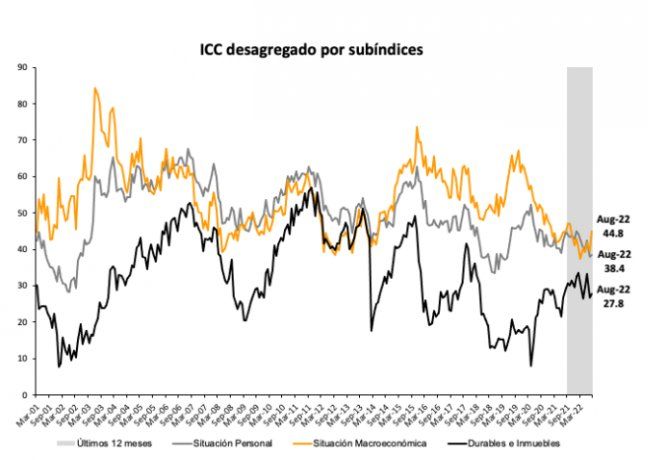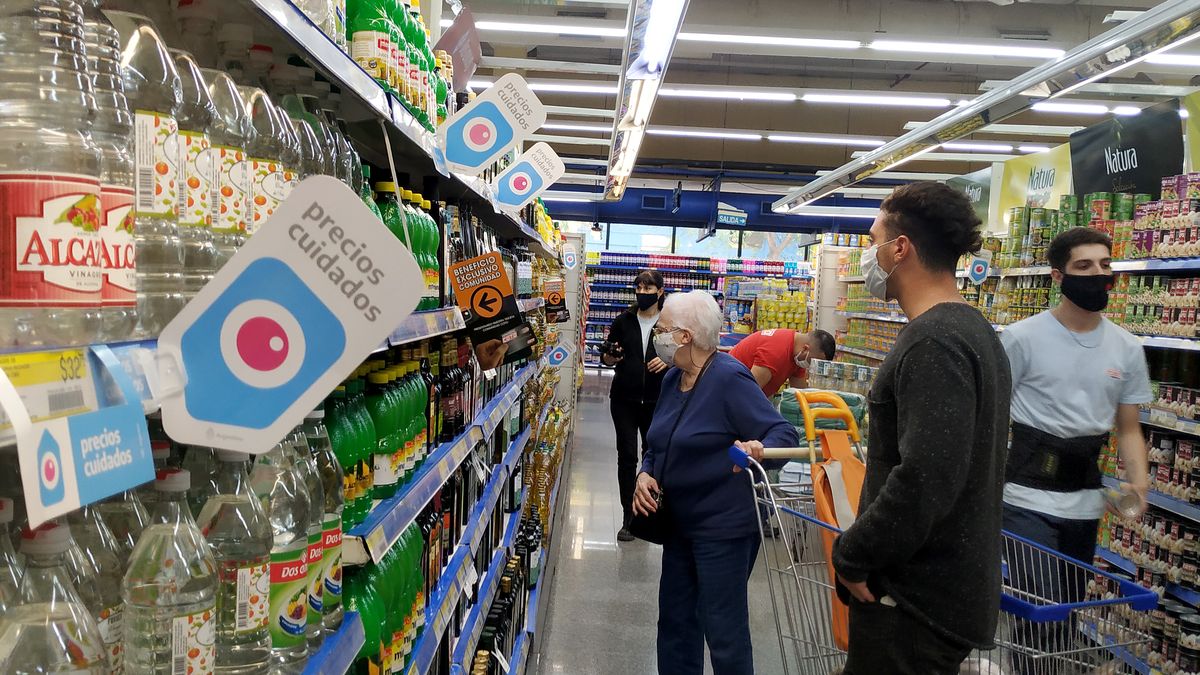Meanwhile, in the aggregate, the interannual variation was positive for CABA, negative for GBA and negative for the Interior, which explains why a negative interannual variation of 6.8% was observed at the country level.
ICC August.PNG
Regarding the performance of the sub-indices, in the monthly comparison the behaviors were homogeneous, according to the Center for Research in Finance (CIF) of the Di Tella University. The predisposition for the acquisition of household appliances, houses and cars -durable goods and real estate- rose 4.3% compared to the previous month.
Likewise, in August the Fixed Assets and Real Estate sub-index rose 2.9% in Greater Buenos Aires, 17.3% in the Interior, and decreased 8.7% in the City of Buenos Aires, always with respect to July.
Regarding said subindex at the national level, both components showed variations in the same direction. The predisposition for the purchase of fixed assets such as household appliances rose 1%, and the perception for the purchase of major goods -such as cars and houses- increased 10.55% seasonally.
ICC sub indices.PNG

While the sub-index that evaluates the Personal Situation of those surveyed rose 1.4% compared to last month, according to the UTDT report.
“If we analyze this subindex in detail, the component that measures the perception of the respondents regarding their personal situation evaluated in comparison with the past -in the short term of one year- decreased 10.5%, while the component that measures the expectations of how their personal situation will be going forward -expectations a year from now- rose 10.1%, always compared to last month”, he indicated.
And he added: “This means that the perception of the respondents about their current personal situation, evaluated with respect to a year ago, worsened while the perception of their future personal situation, evaluated looking forward a year, showed a considerable rise. ”.
In another order, the sub-index that measures the short and medium-term expectations of consumers with respect to the Macroeconomic Situation showed a rise (13.2%) with respect to the measurement of the previous month. Analyzing in detail, compared to July, improvements were observed for both short-term macroeconomic expectations (32.2%) and long-term ones (4.4%).
In the year-on-year comparison, the Consumer Confidence Index (ICC) at the national level accumulates a drop of 6.8%. If the year-on-year comparison is broken down by components, it can be seen that the fall was mainly driven by a decrease in the Personal Situation sub-index, with a negative variation of 14.3%, followed by the Durable Goods and Real Estate sub-index with a drop of 5.1%, and by the Macroeconomic Situation sub-index with a decrease of 0.5%.
Meanwhile, by educational level, which the UTDT takes as an approximation to the income level of the individual, the ICC decreased 5.5% in the group of consumers with the highest educational level/income, and decreased 9.4% in the consumers with the lowest educational level/income.
Finally, month-over-month, the measure of the highest education level/income group of households rose 2.1%while the measurement of the group of households with the lowest educational level/income showed a positive variation of 11.1%, always with respect to July.
Source: Ambito
David William is a talented author who has made a name for himself in the world of writing. He is a professional author who writes on a wide range of topics, from general interest to opinion news. David is currently working as a writer at 24 hours worlds where he brings his unique perspective and in-depth research to his articles, making them both informative and engaging.




